An ingrown toenail is a common problem and happens when the side edge of a toenail grows into the skin tissue around it. According to statistics, 18% of US adults have experienced it at least once in their lives. It’s important to treat ingrown toenails as soon as they start in order to prevent infection and to keep it from getting worse.
We have gathered the most common and proven remedies against ingrown toenails. Remember, to be forewarned is to be forearmed. Read carefully through this article in order to be aware of how to treat them if they occur.
1. Prepare a tub with Epsom salt.

Soaking your feet in warm water with Epsom salt will help you to reduce any soreness. Also, the nail will get softer and easier to cut afterward.
- Mix 2 tbsp of Epsom salt in warm water in a foot tub.
- Hold your feet there for 15-20 minutes.
- Try to repeat the procedure about 3 times a day for a better result.
2. Use apple cider vinegar.
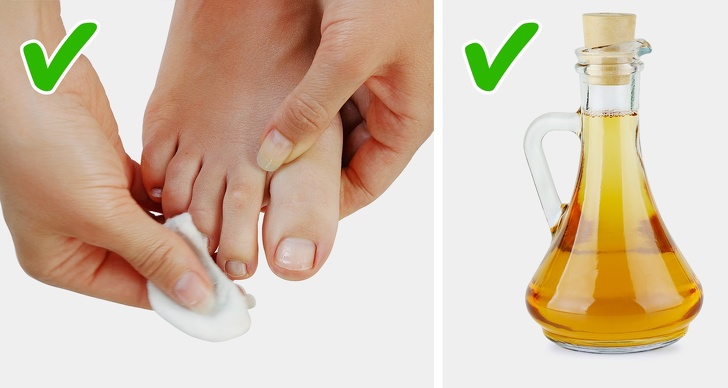
Apple cider vinegar is known for its antiseptic and anti-inflammatory qualities. It’ll help to prevent infection and relieve the swollen skin.
- Soak a cotton ball in apple cider vinegar.
- Cover the toe with a bandage and keep it like this for a couple hours.
- Dry the area thoroughly afterward.
3. Make turmeric paste.
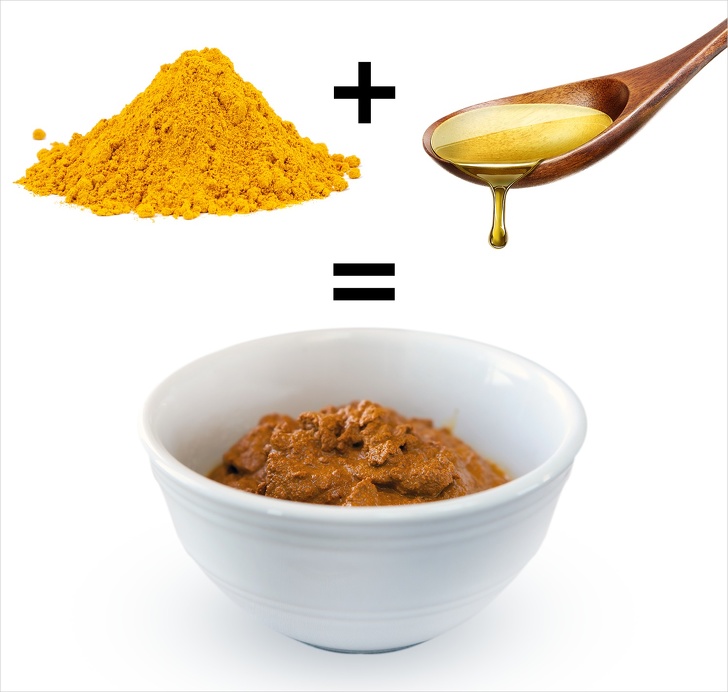
Turmeric paste has anti-inflammatory and pain-relieving qualities, so it will reduce the swelling and the pain from the ingrown toenail.
- Mix 1/2 tsp of turmeric powder with 1/2 tbsp of mustard oil.
- Cover the affected toe with the paste and apply a bandage over it.
- Hold it for about an hour.
- Repeat the procedure 2-3 times daily.
4. Apply lemon juice and honey.
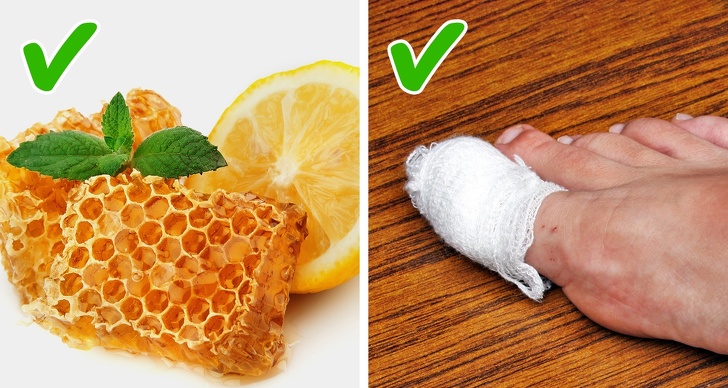
Lemon and honey have a great antimicrobial effect on the skin. They’ll fight the possible infection in the affected toe.
- Apply a drop of lemon juice and a little bit of honey right onto the toe.
- Cover the toe with a bandage and leave it overnight.
- Repeat the procedure every evening until the toe gets better.
5. Keep the nail raised with a cotton wedge.
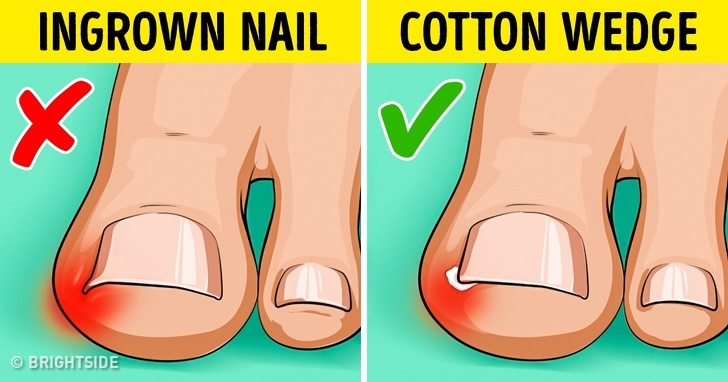
In order to keep your toenail slightly raised, place a small cotton wedge under it.
- Carefully lift the affected part of your nail with tweezers.
- Place a small piece of cotton between the toenail and the skin.
- Try to change the cotton wedge often, especially after soaking in a foot tub.
6. Lift the nail with dental floss.
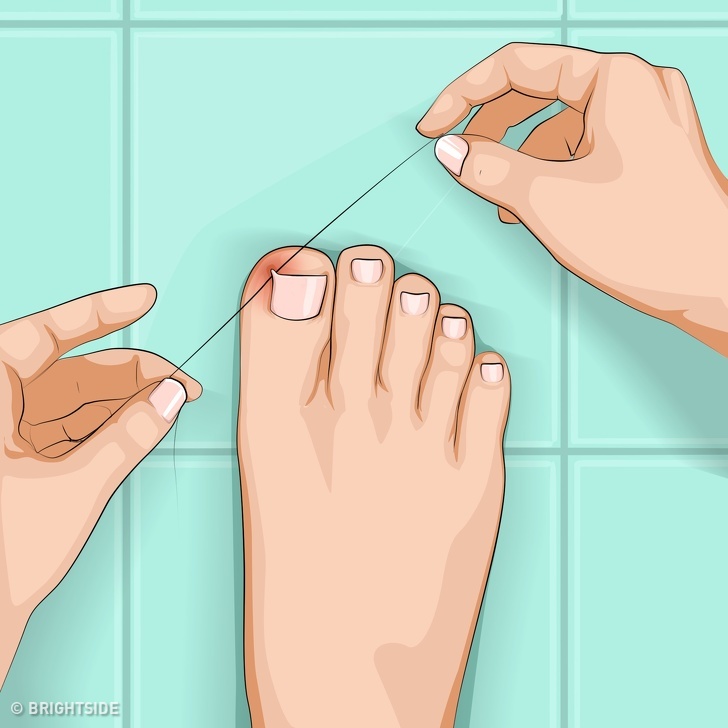
This works better right after soaking in a foot tub, causing the skin and nail to get softer.
- Carefully lift the edge of the ingrown toenail with a piece of clean, waxed dental floss.
- Don’t dig too much into your toenail.
- Repeat the procedure each time after soaking your foot.
7. Trim your toenails correctly.
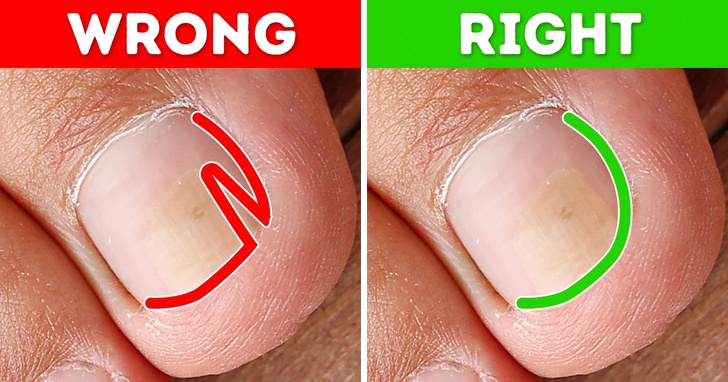
In order to prevent ingrown toenails from occurring again, learn how to trim your nails correctly.
- Always start trimming at the edges, not at the middle part.
- The smoother the edge,the lesser the chance of getting an ingrown toenail. Avoid sharp edges.
- Don’t cut them too short, as they may dig into your skin as they keep growing.
- Trim your toenails once every 2-3 weeks.
8. Wear comfortable shoes.
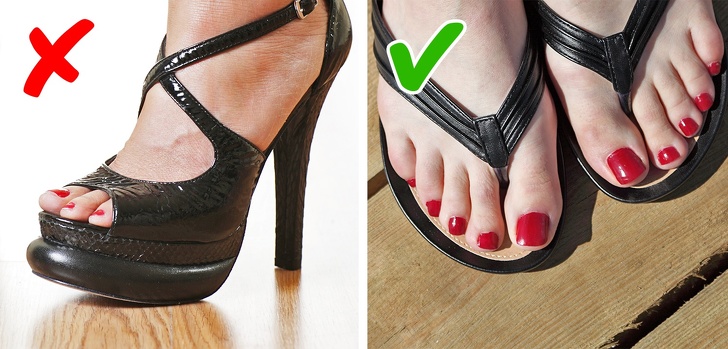
Choose open-toed sandals and sensible footwear in order to provide extra room for your toes. An ideal variant would be those made of soft fabrics that allow your skin “to breathe” while leaving room for your toes. Actually, tight and uncomfortable shoes are one of the reasons toenails might start growing into the skin in the first place. High heels aren’t an option either, as they add pressure to the toes.
9. See your doctor.

If nothing helps and your toe doesn’t get better in 2-3 days, see your doctor. They might prescribe an oral or topical antibiotic. Your general practitioner is usually able to treat an ingrown toenail but if it looks like a complicated case and is painful with extreme swelling, you’ll probably want to see a podiatrist.











